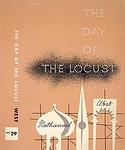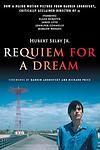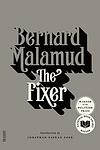The Greatest "Psychological, Tragedy" Books of All Time
Click to learn how this list is calculated.
This list represents a comprehensive and trusted collection of the greatest books. Developed through a specialized algorithm, it brings together 300 'best of' book lists to form a definitive guide to the world's most acclaimed books. For those interested in how these books are chosen, additional details can be found on the rankings page.
Genres
The Psychological genre of books typically explores the inner workings of the human mind and emotions, often delving into complex and sometimes disturbing psychological states. These books may focus on mental illness, trauma, relationships, or personal growth, and often challenge readers to confront their own beliefs and perceptions. Psychological books may be suspenseful, thought-provoking, and emotionally intense, offering readers a deep and often unsettling glimpse into the human psyche.
Tragedy is a genre of literature that explores the darker aspects of human nature and the human experience. It typically involves a protagonist who is faced with a series of challenges and obstacles that ultimately lead to their downfall or demise. Tragic stories often deal with themes of loss, grief, and the struggle to find meaning in a world that can be cruel and unforgiving. Despite their often bleak subject matter, tragic stories can be deeply moving and thought-provoking, offering readers a powerful glimpse into the complexities of the human condition.
Countries
Date Range
Reading Statistics
Click the button below to see how many of these books you've read!
Download
If you're interested in downloading this list as a CSV file for use in a spreadsheet application, you can easily do so by clicking the button below. Please note that to ensure a manageable file size and faster download, the CSV will include details for only the first 500 books.
Download-
1. The Stranger by Albert Camus
The narrative follows a man who, after the death of his mother, falls into a routine of indifference and emotional detachment, leading him to commit an act of violence on a sun-drenched beach. His subsequent trial becomes less about the act itself and more about his inability to conform to societal norms and expectations, ultimately exploring themes of existentialism, absurdism, and the human condition.
-
2. The Brothers Karamazov by Fyodor Dostoevsky
This classic novel explores the complex, passionate, and troubled relationship between four brothers and their father in 19th century Russia. The narrative delves into the themes of faith, doubt, morality, and redemption, as each brother grapples with personal dilemmas and family conflicts. The story culminates in a dramatic trial following a murder, which serves as a microcosm of the moral and philosophical struggles faced by each character, and by extension, humanity itself.
-
3. The Scarlet Letter by Nathaniel Hawthorne
Set in 17th-century Puritan Boston, this novel tells the story of a woman who conceives a daughter through an affair and struggles to create a new life of repentance and dignity. She is forced to wear a scarlet "A" on her dress as a sign of her adultery while her lover, a revered local minister, remains unnamed and unpunished. Throughout the book, themes of sin, legalism, and guilt are explored.
-
4. Rabbit, Run by John Updike
The novel follows the life of a 26-year-old former high school basketball star, who is dissatisfied with his current life. He impulsively leaves his wife and son and embarks on a journey in the hopes of finding a more meaningful existence. His decisions, however, lead to a series of tragic events that impact the lives of those around him. This mid-20th-century novel explores themes of freedom, responsibility, and the tragic consequences of impulsive decisions.
-
5. The House of Mirth by Edith Wharton
Set in the backdrop of New York's high society during the turn of the 20th century, the novel follows the life of Lily Bart, a beautiful but impoverished woman of social standing. As she navigates the pressures and expectations of her social circle, Lily grapples with the need to secure a wealthy husband to maintain her lifestyle. However, her romantic inclinations and her desire for personal freedom come into conflict with societal norms, leading to her tragic downfall.
-
6. An American Tragedy by Theodore Dreiser
This classic novel explores the dark side of the American Dream through the story of a young man who, despite his humble beginnings, aspires to climb the social ladder. He becomes involved with two women, one wealthy and one from a working-class background. His ambition and desire for status lead him to commit a crime that ultimately results in his downfall. The novel is a stark examination of the destructive power of unchecked ambition and the moral compromises people are willing to make in pursuit of wealth and status.
-
7. Atonement by Ian McEwan
Atonement is a powerful novel that explores the consequences of a young girl's false accusation. The narrative follows the lives of three characters, the accuser, her older sister, and the sister's lover, who is wrongly accused. This false accusation irrevocably alters their lives, leading to the accused's imprisonment and eventual enlistment in World War II, while the sisters grapple with guilt, estrangement, and their own personal growth. The novel is a profound exploration of guilt, forgiveness, and the destructive power of misinterpretation.
-
8. Jude the Obscure by Thomas Hardy
This novel tells the story of Jude Fawley, a working-class young man who dreams of becoming a scholar. The traditional class structure in 19th-century England prevents him from realizing his dream and his only solace is his love for his cousin, Sue Bridehead. Their scandalous relationship and the tragic events that follow form the heart of the narrative, which explores themes of love, class, religion, and morality.
-
9. Berlin Alexanderplatz by Alfred Döblin
Set in 1920s Berlin, the book follows the life of Franz Biberkopf, a man recently released from prison who is trying to make an honest life for himself. However, he is drawn back into the criminal underworld due to circumstances and the influence of his acquaintance, Reinhold. The book is a vivid portrayal of city life in Weimar-era Germany, exploring themes of poverty, crime, redemption and the struggle to maintain one's morality amidst chaos and corruption.
-
10. Clarissa by Samuel Richardson
The novel revolves around the beautiful and virtuous Clarissa Harlowe, a young woman from a wealthy family who is pursued by the villainous Robert Lovelace. Despite her attempts to maintain her virtue and independence, she is tricked into running away with Lovelace and is subsequently held against her will. Lovelace's relentless pursuit and Clarissa's steadfast resistance culminate in her tragic end, making the novel a complex exploration of power, morality, and the vulnerability of women in society.
-
11. The Day of the Locust by Nathanael West
"The Day of the Locust" is a novel set in 1930s Hollywood, portraying the dark side of the American dream through the lives of its desperate characters. The protagonist, a young artist from the East Coast, finds himself disillusioned by the superficiality and decay of Hollywood society, which is filled with failed actors, charlatans, and lost souls. The narrative culminates in a violent riot, symbolizing the destructive power of frustrated dreams and the harsh reality of the American dream.
-
12. Ethan Frome by Edith Wharton
Set in a bleak New England landscape, the book tells the story of Ethan Frome, a poor, hardworking farmer who is married to a sickly, bitter woman named Zeena. When Zeena's young cousin Mattie comes to live with them, Ethan becomes infatuated with her, leading to a tragic love triangle. The narrative explores themes of passion, duty, and the oppressive nature of rural poverty.
-
13. A Handful of Dust by Evelyn Waugh
Set in the 1930s, this novel explores the disintegration of the marriage of an upper-class English couple, Tony and Brenda Last. Brenda embarks on an affair with a social climber, John Beaver, leading to the demise of her marriage. After their son's tragic death, Brenda demands a divorce and a large portion of Tony's estate. Tony, heartbroken, embarks on an ill-fated expedition to the Brazilian jungle. The novel critically examines the moral decay of British aristocracy and society.
-
14. Revolutionary Road by Richard Yates
This novel revolves around Frank and April Wheeler, a young couple living in a Connecticut suburb during the mid-1950s. Struggling with the banality of their lives, they plan to move to France where they believe they will be able to live more fulfilling and enlightened lives. However, their plans are derailed by a surprise pregnancy and the pressures of societal expectations, leading to a tragic end. The book explores themes of conformity, the search for self-fulfillment, and the disillusionment of the American Dream.
-
15. Thérèse Raquin by Émile Zola
"Thérèse Raquin" is a novel about a young woman who is unhappily married to her cousin, a sickly and selfish man. She embarks on a passionate and destructive affair with one of her husband's friends, leading to a series of tragic events. The novel explores themes of lust, guilt, and the psychological consequences of such immoral actions, set against the bleak backdrop of the Parisian underworld.
-
16. Snow Country by Yasunari Kawabata
"Snow Country" is a poignant tale of a tragic love affair between a wealthy city-dweller and a provincial geisha. Set in a remote hot-spring town in the snowy Japanese mountains, the story explores the depth of human emotions, loneliness, and the ephemeral nature of beauty and love. The narrative is filled with vivid imagery and symbolism, reflecting the melancholic and transient beauty of the snow country, and the inevitable fate of the characters.
-
17. The Lonely Passion of Judith Hearne by Brian Moore
The novel revolves around the life of Judith Hearne, a lonely middle-aged spinster living in 1950s Belfast who struggles with her declining social status and her increasing reliance on alcohol. As she desperately seeks companionship and purpose in life, she becomes infatuated with her boarding house's landlady's brother, only to face rejection and further isolation. The book explores themes of loneliness, faith, disillusionment, and the harsh realities of ageing.
-
18. Thérèse Desqueyroux by François Mauriac
The novel revolves around the life of Thérèse Desqueyroux, a woman trapped in a loveless marriage in rural France. She is married to Bernard for the sake of property and wealth, not love. Feeling suffocated by the societal expectations and her husband's domination, Thérèse tries to poison Bernard. However, her plan fails and she is acquitted due to lack of evidence. The rest of the novel explores Thérèse's introspection, her struggle with guilt, and her quest for redemption and freedom.
-
19. Requiem for a Dream by Hubert Selby
"Requiem for a Dream" is a harrowing tale that explores the depths of addiction and its devastating consequences. The narrative follows the lives of four characters, each battling their own form of substance abuse. The main character, a woman in her old age, becomes addicted to diet pills in her quest to lose weight and appear on a television game show, while her son, his girlfriend, and his best friend are all caught up in heroin addiction. As their dependencies deepen, their lives spiral out of control, leading to tragic endings. The book serves as a stark and brutal depiction of drug addiction and its destructive effects on individuals and their relationships.
-
20. A Little Life by Hanya Yanagihara
The novel is a deeply moving portrayal of four friends in New York City, spanning over several decades. It primarily focuses on Jude, a man with a mysterious and traumatic past, who struggles with physical disability and emotional trauma. The story explores themes of friendship, love, trauma, suffering, and the human will to endure in spite of life's hardships. It is an epic tale of heartbreak and despair but also of resilience and enduring love.
-
21. The Sorrow Of War by Bao Ninh
The book is a poignant tale about a North Vietnamese soldier, Kien, and his experiences during and after the Vietnam War. It's a graphic and emotional exploration of the traumas of war, the loss of innocence, and the struggle to make sense of life post-conflict. The narrative is non-linear, shifting between his horrific war experiences, his post-war life in Hanoi, and his attempt to come to terms with his past. The novel also highlights the broader societal impact of the war, particularly on the Vietnamese people.
-
22. Silk by Alessandro Baricco
"Silk" is a historical fiction novel that tells the story of a 19th-century French silkworm merchant who travels to Japan for business. During his travels, he becomes enamored with a mysterious woman. His unrequited love for her haunts him for the rest of his life, even as he returns to France and continues his life there. The novel explores themes of love, longing, and the profound impact that brief encounters can have on one's life.
-
23. Beauty and Sadness by Yasunari Kawabata
A renowned novelist in Tokyo is drawn back into the life of his first love, Otoko, who he had a passionate affair with when she was just 15. Now a successful painter, she lives with a young woman named Keiko, who is deeply devoted to her. As the novelist becomes entangled in their lives once again, a complex web of love, jealousy, and resentment unfolds. The novel is a poignant exploration of the enduring themes of memory, love, and loss.
-
24. The Fixer by Bernard Malamud
"The Fixer" is a historical novel set in Tsarist Russia that follows the story of a Jewish handyman, or "fixer", who is unjustly imprisoned after being accused of ritual murder. The narrative explores his struggle for dignity, survival, and ultimately freedom against the backdrop of a deeply anti-Semitic society. The protagonist's ordeal becomes a symbol for the broader persecution of Jews during this era, offering a profound commentary on human rights, faith, and resilience.
-
25. We Need To Talk About Kevin by Lionel Shriver
"We Need To Talk About Kevin" is a gripping and unsettling novel that explores the complex relationship between a mother and her troubled son. Told through a series of letters written by the mother to her estranged husband, the book delves into the aftermath of a horrific school massacre committed by Kevin. As the mother reflects on her own guilt, fears, and doubts, she questions whether her own actions and choices played a role in shaping Kevin's violent nature. This thought-provoking and chilling narrative explores themes of nature versus nurture, parental responsibility, and the profound impact of tragedy on a family.
Reading Statistics
Click the button below to see how many of these books you've read!
Download
If you're interested in downloading this list as a CSV file for use in a spreadsheet application, you can easily do so by clicking the button below. Please note that to ensure a manageable file size and faster download, the CSV will include details for only the first 500 books.
Download























